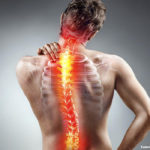
Alcoholic beverages have become a part of our daily life, and many people consume them without realizing they’re addictive until they realize they can’t go a day without drinking. Most people with alcohol problems aren’t able to tell where the tipping point between being a heavy drinker and an alcoholic is, thus not realizing when their drinking goes out of control.
Recognizing you have an alcohol problem is the first step towards recovery. The main symptom of a problem is that your body depends on alcohol to function and your drinking is causing you trouble at work, with your family and friends, or damaging your health.
If you’re reading this page it probably means you’ve identified some symptoms of alcoholism in your behavior and want to quit. That’s great! It takes a lot of courage to take this step, and though recovering from an addiction can be challenging, there are many ways to make your recovery process quicker and easier.
Here are 6 tips to quit drinking alcohol, they worked for me, and I hope they work for you too:
- Go to your doctor
Giving up drinking completely may be difficult, and abstinence syndrome can be potentially fatal. If you’ve decided to quit alcohol, you should check with your doctor or another medical professional that can help you on your road towards recovery.
Some of the symptoms of abstinence include panic attacks, intense anxiety, tremors, and tachycardia. If you experience any of these symptoms it’s important to have immediate medical attention. Generally, doctors who treat alcohol abstinence syndrome prescribe medicine that will calm your anxiety and panic.
You don’t have to feel like you need to do this on your own. It is a lot easier -and safer- to stop drinking with medical help than trying to quit by yourself.
- Make your intentions known
It’s important to tell your family and friends that you’re trying to stop drinking and explain why. This way they will have better understanding why you start refusing to party or drinks after work. Plus, you can share your success with them and they can give you extra motivation.
Friends and family can be a great source of support and encouragement. Don’t be afraid to turn to them with your alcohol problem, you don’t have to feel like a burden, chances are they would be happy to help you along the way.
- Keep yourself occupied
Having nothing to do can lead you to start drinking again. Keeping your mind occupied is a great way to avoid relapse. Group activities can be especially helpful, since being around happy, active people can help you change your attitude into a more positive one. You can take a new sport, learn how to play an instrument or even join a volunteering group.
Working out is fundamental in alcohol recovery and it’s a great way to keep yourself busy. Exercise releases endorphins, which are the substances that give you that feeling of euphoria when you drink alcohol. This means working out will make you feel happier and calmer, in addition to improving your overall health.
- Gradually reduce your drinking
Cutting down alcohol that you consume as trying to quit right away can be more beneficial to your health and easier to do. This is a good way to avoid withdrawal symptoms since your organism will still receive alcohol, but you’ll get used to drinking less and less each time.
If you drink alcohol every night, you can start by cutting down to five days a week, designating two alcohol-free days, plus, you can start watching the quantity and the grade of alcohol in your drinks, so you can control yourself when drinking. This can soon become a habit, and the personal challenge can help you remove the temptation and encourage you to start adding more alcohol-free days to your week.
When you’re starting to cut down it is crucial that you don’t consume very high quantities of alcohol, since you can lose control and go back to square one.
Set a limit from the beginning and stick to it.
- Remember the bad times
Sometimes you may feel an urge to drink because you associate alcohol with happiness and pleasure. When you catch yourself having these thoughts, try to re-focus by remembering all the bad times you had involving alcohol. Remember all the times you got sick, the hangovers, the troubles it has cost your personal life
The idea isn’t to hate yourself for events that have already occurred, don’t let guilt over what has happened in the past overcome you. Hate the idea of drinking alcohol because of how much damage it brings to your life.
Your mind can play tricks on you by remembering only the good times and how great alcohol made you feel, so you should pick the worst two or three experiences involving alcohol and whenever you feel tempted to drink play them over your mind.
- Reward progress
Making this major lifestyle change can be hard, and it’s important to acknowledge every success and reward yourself with something if you’re making progress. Start by setting small goals and work your way up first, an alcohol-free weekend, then an alcohol-free week, an alcohol-free month and so on. When you achieve these goals treat you to something you enjoy such as new clothes or a fancy dinner with the money you’re saving from alcohol.
Keep in mind that it is just as important not to punish yourself if you slip up every now and then.
When you start cutting alcohol out of your life you’ll begin to notice a series of improvements in the way you feel, the way you look, your relationships and your performance at work or school. There are countless benefits of quitting alcohol, and it won’t take long before you start realizing and enjoying them.
Do you know any other tips for quitting alcohol? If you have any suggestions, please leave a comment below.










